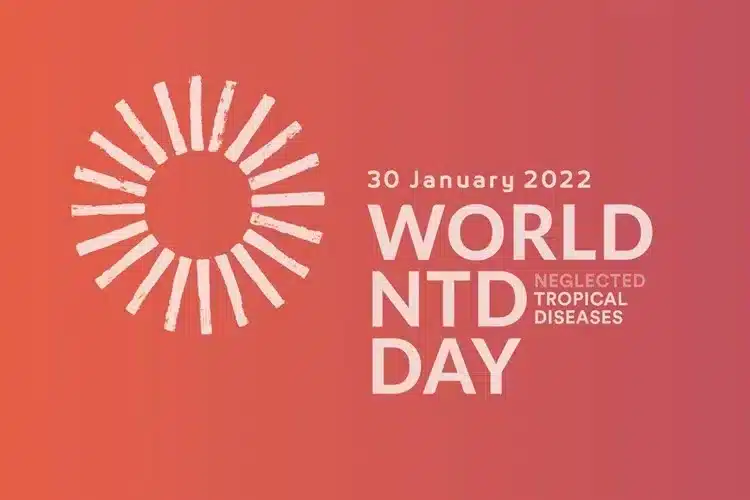World Neglected Tropical Diseases Day and its Significance

World Neglected Tropical Diseases Day is observed every year on 30 January. It is also known as World NTD Day. As a catalyst, it helps transform awareness into action, secure increased funding for neglected tropical diseases (NTDs), and foster leadership and ownership of NTD programs from the affected countries. Low-income populations in Africa, Asia, and the Americas are more likely to get these diseases.
WHO, CDC, and infectious disease experts disagree about which diseases are neglected tropical diseases. Researcher Feasey notes 13 neglected tropical diseases: ascariasis, Buruli ulcer, Chagas disease, dracunculiasis, hookworm infection, human African trypanosomiasis, Leishmaniasis, leprosy, lymphatic filariasis, onchocerciasis, schistosomiasis, trachoma, and trichuriasis. Fenwick identifies 12 “core” neglected tropical diseases: the same as above, minus hookworm.
Professor Alice Cruz, UN Special Rapporteur on the elimination of discrimination against persons affected by leprosy and their family members, who called for a stop to all forms of discrimination against people suffering from NTDs, particularly leprosy.
We need action. Action that promotes material equality through redistributive policies that can guarantee a minimum standard of living to persons affected by NTDs, alongside equitable access to public goods and services. Organizations and networks of persons affected are a key resource to strengthen action and its reach
In addition to the observance of World Neglected Tropical Diseases Day, there are other days which are thematic and relevant to the day. World Leprosy Day is observed last Sunday of January. In 2022, both days fall on 30 January. World Patient Safety Day is observed on 17 September.
Theme of World Neglected Tropical Diseases Day 2022
World NTD Day aims to get more attention to neglected tropical diseases (NTDs), secure increased resources for NTDs, and most importantly, facilitate political leadership and ownership of NTD programmes from affected countries. This year’s theme for World Neglected Tropical Diseases Day (2022) is “Achieving health equity to end poverty-related diseases”, with a call to focus more on strengthening interventions for the promotion of equitable health for all.
Quick facts Neglected Tropical Diseases
Here are quick facts about neglected tropical diseases:
- More than 1 billion people are affected by NTDs. Every year, 1.7 billion people need preventive treatment.
- Neglected tropical diseases are often stigmatized, making treatment more difficult. Especially when it comes to leprosy.
- Unprecedented progress has been made. Forty-three countries have gotten rid of at least one NTD. Seventeen of them are in Africa.
- Unprecedented progress has been achieved. 43 countries have eliminated at least one NTD. so far, 17 of them in Africa.
History of World Neglected Tropical Diseases Day
American researcher Kenneth S Warren came up with the term “neglected tropical diseases” in 1977.
The World Health Organization’s World Health Assembly (WHA74) officially endorsed World Neglected Tropical Diseases Day on 30 January 2021. World days are a great way to get people’s attention, increase public and political support, and inspire action. This is a historic moment for neglected tropical diseases (NTDs). United Arab Emirates, Brazil, and Oman took significant steps in leading this initiative.
NTD’s 2021-2030 roadmap keeps accelerating interventions, but introduces a broader and more ambitious agenda, requiring a new political declaration. The Kigali Declaration on neglected tropical diseases, sponsored by the Rwandan government, will be launched in 2022 to renew and reinvigorate commitments to end NTDs, and come after the current setback caused by the COVID-19 pandemic. An international campaign called “100% Committed” will kick off on World NTD Day 2022, calling on stakeholders to sign the declaration and make bold commitments to achieving the 2030 roadmap and Sustainable Development Goals for NTDs.
Read Also: COVID in India: the deep-rooted issues behind the current crisis
Observer Voice is the one stop site for National, International news, Sports, Editor’s Choice, Art/culture contents, Quotes and much more. We also cover historical contents. Historical contents includes World History, Indian History, and what happened today. The website also covers Entertainment across the India and World.

